Your SEO focus keyword is the main keyword that you target in your blog post or article.
In this article, you’ll discover:
- How to find your focus keyword
- How to write your article around a focus keyword
- How to optimize for your SEO focus keyword
Let’s dive in!
- What is a Focus Keyword in SEO?
- Use a Long Tail for your Focus Keyword
- How to Find SEO Focus Keywords
- How to Write Articles Around SEO Focus Keywords
- How to Optimise for a Focus Keyword
- Use Variations of Your Focus Keyword
- How to Get Your New Blog Post Indexed by Google
- Focus Keyword: Frequently Asked Questions
- Conclusion
- More Articles About Keyword Research
What is a Focus Keyword in SEO?
In the Yoast SEO plugin SEO ‘focus keyword’ used to refer to the keyword that is the focus of your article or blog post.
In the current version of the plugin, it’s called the ‘focus keyphrase’:
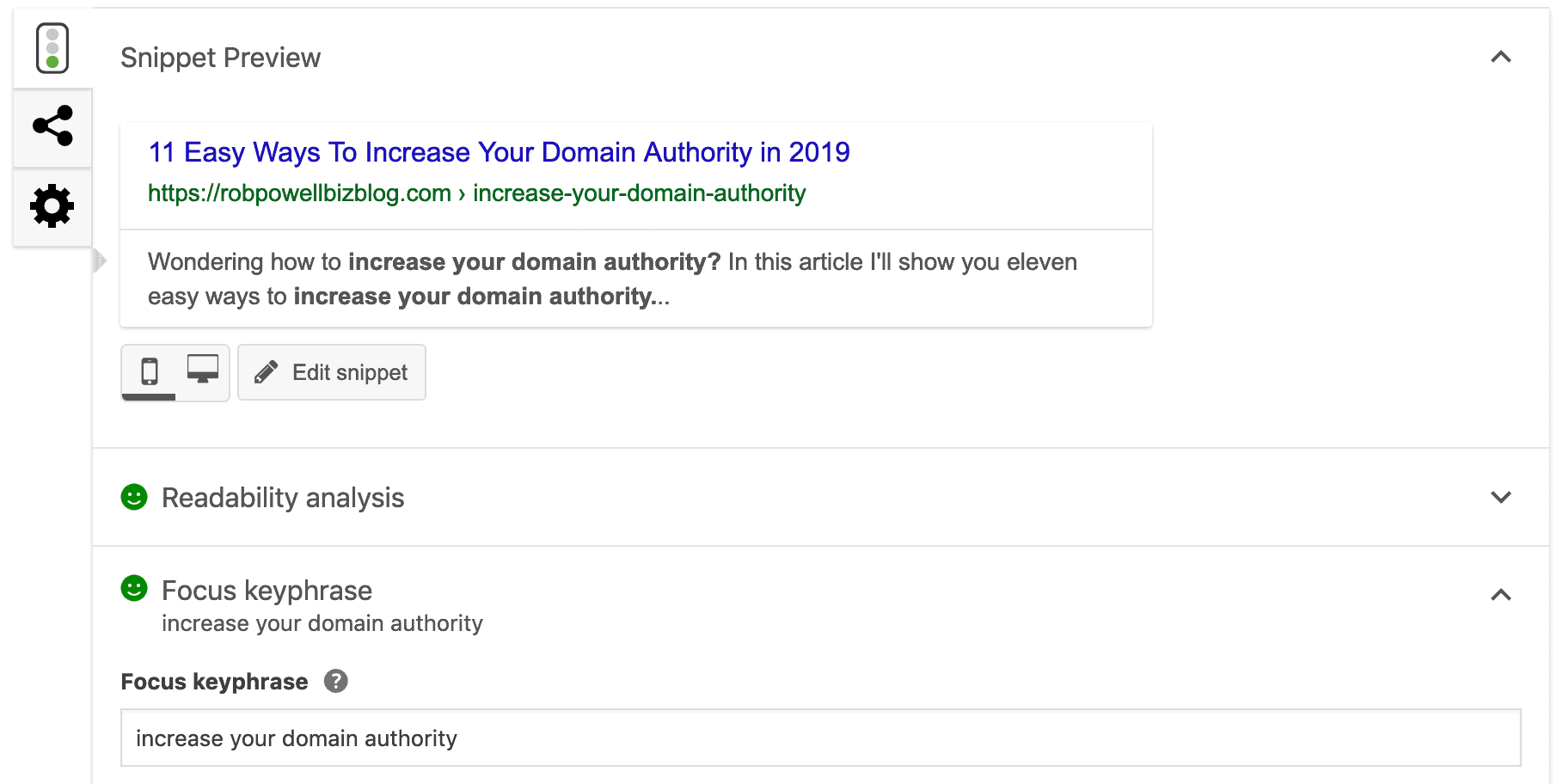
The ‘SEO focus keyword’ or ‘focus keyphrase’ is the keyword that you’re trying to get your article to rank for in Google.
And unless you own a website with very high domain authority, you’ll usually be going for a focus keyword that is a long tail keyword.
Use a Long Tail for your Focus Keyword
The SEO focus keyword should be a long tail keyword.
In other words, it should be a keyword that contains three or more words.
Here are two reasons you should make your focus keyword a long tail keyword:
Long tail keywords are easy to rank for
Long tail keywords are relatively easy to rank for on Page #1 of Google.
They have relatively low competition, but they also have relatively low monthly search volume.
That’s why the competition for them is low – the big players don’t bother with them.
It’s important to understand this trade-off: low competition in exchange for low traffic.
But don’t underestimate long tail keywords – they are low hanging fruit and many a blogger has made a fortune by targeting long tail keywords.
Long tail keywords deliver traffic that converts better
A key advantage of long tail keywords is that people who type them into Google are much further along the buyer journey than people who type in ‘head’ keywords.
This means that traffic from long tail keywords converts much better than traffic from ‘head’ keywords.
And that means you can get the same number of customers or sign-ups with a much smaller volume of traffic.
Examples of long tail keywords
Here are some examples of ‘head’ keywords and long tail keywords:
- travel tips = head keyword
- travel tips for families = long tail keyword
- content marketing = head keyword
- content marketing for lawyers = long tail keyword
- parenting tips = head keyword
- parenting tips for single dads = long tail keyword
- travel tips = head keyword
- travel tips for families = long tail keyword
- content marketing = head keyword
- content marketing for lawyers = long tail keyword
- parenting tips = head keyword
- parenting tips for single dads = long tail keyword
How to Find SEO Focus Keywords
Here are some tips on how to find focus keywords that will be the primary keyword that you write your article around.
Start with seed words
Here’s the technique I use to find seed words:
- Visit 10 blogs in your niche and copy the titles of 15 blog posts from each blog site
- Every blog post title contains the keyword that the author wanted to rank for
- Extract the seed word from that keyword
And here’s an example of how to extract the seed word from the keyword:
- ‘backpacking tips for europe’ is the keyword
- ‘backpacking tips’ is the seed word
You’ll end up with a list of 100 to 150 seed words (roughly 1 seed word for every blog post title you collected).
Type your seed words into a keyword research tool
Here some free keyword research tools:
Word Tracker
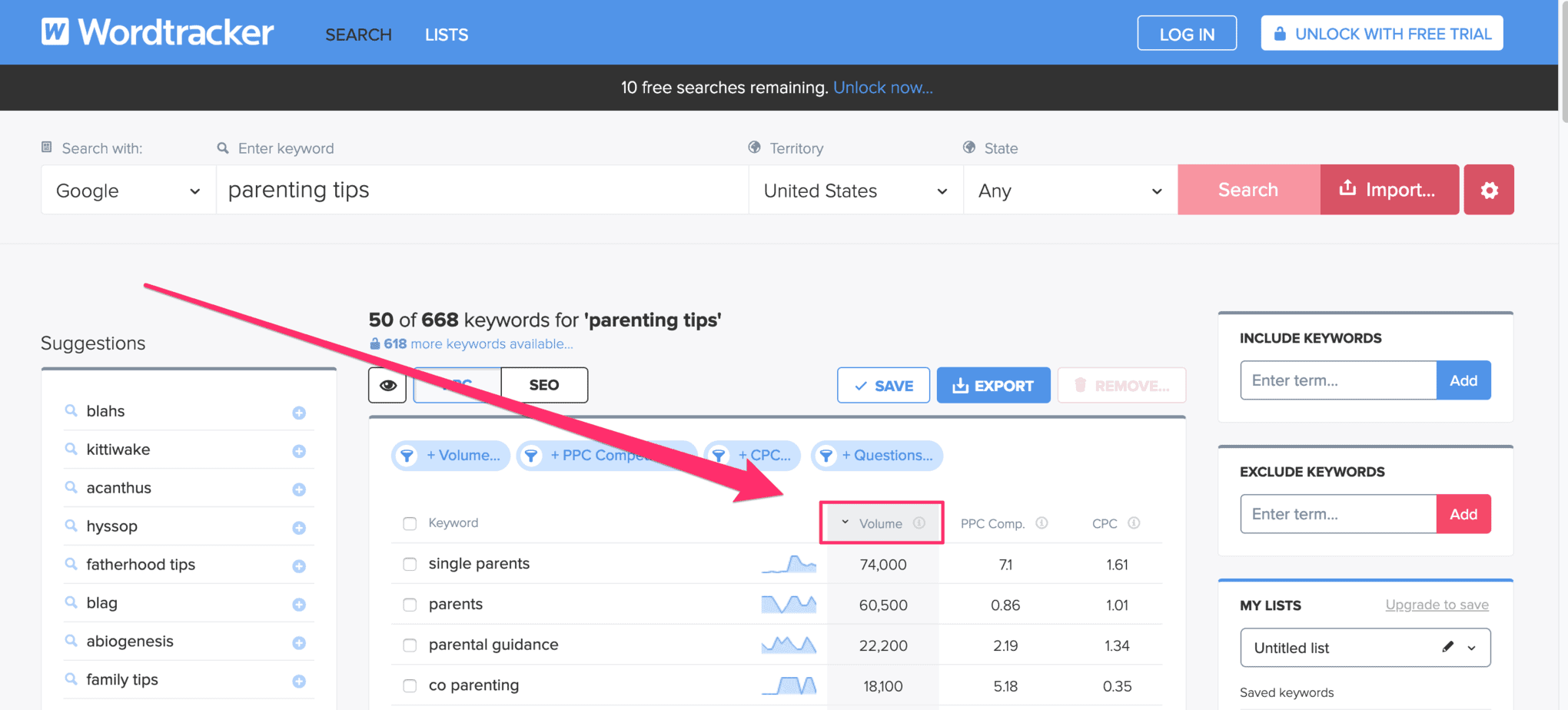
Ubersuggest
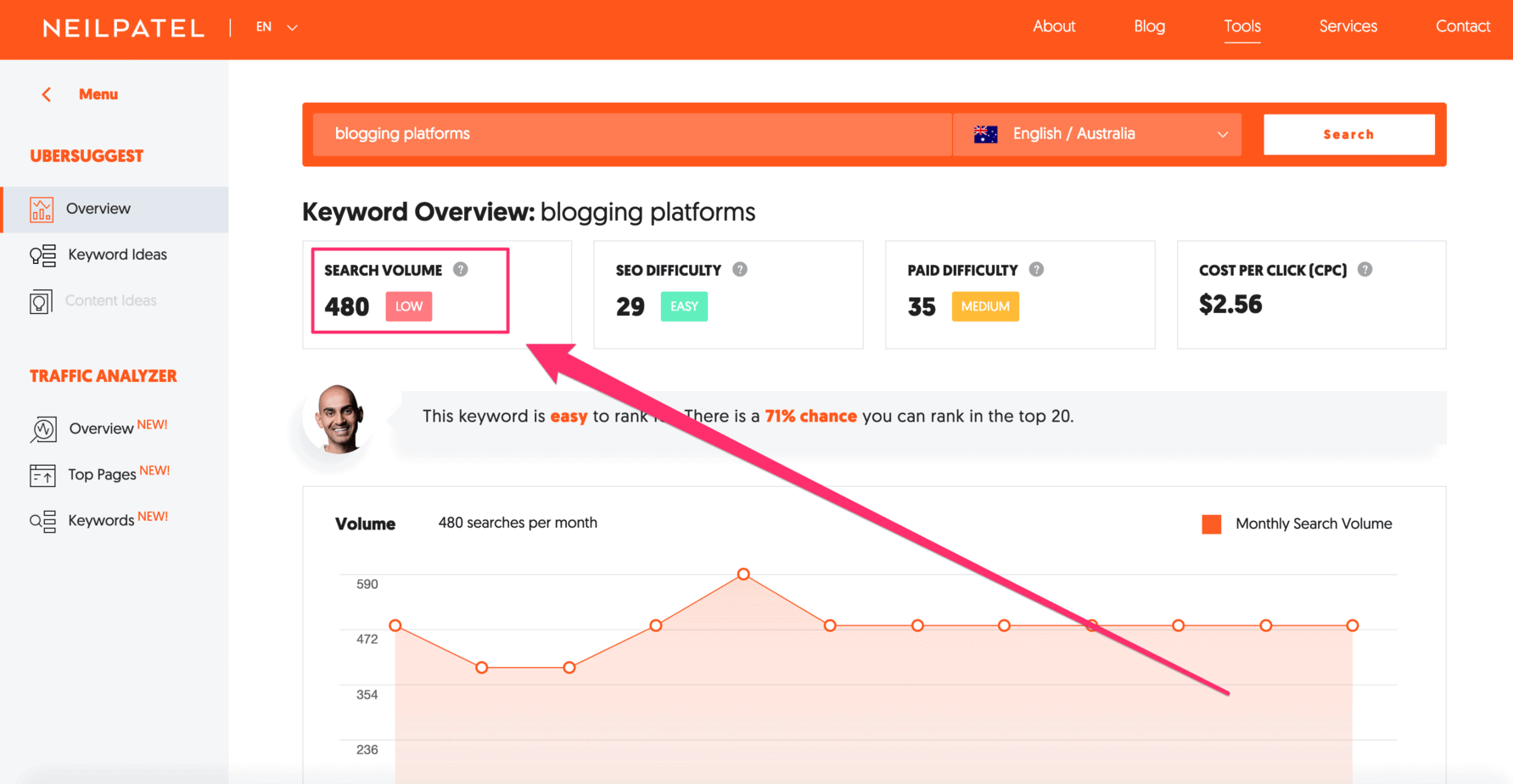
And here are some paid keyword research tools:
KWFinder
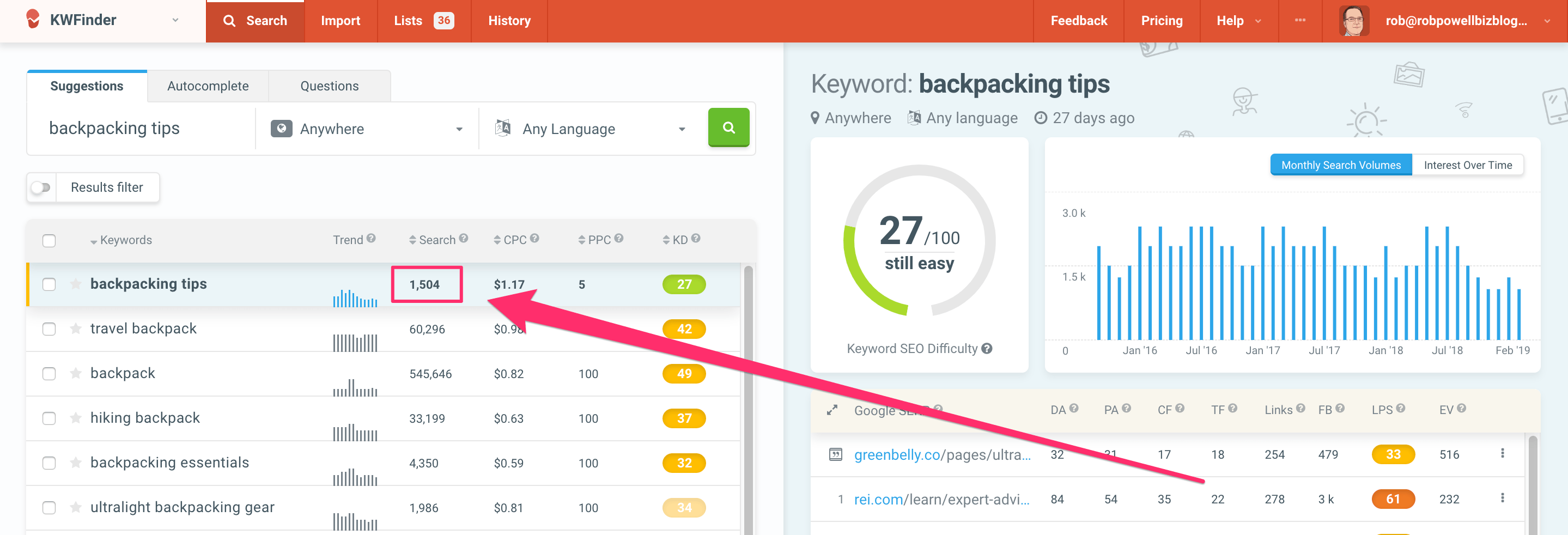
SEMRush
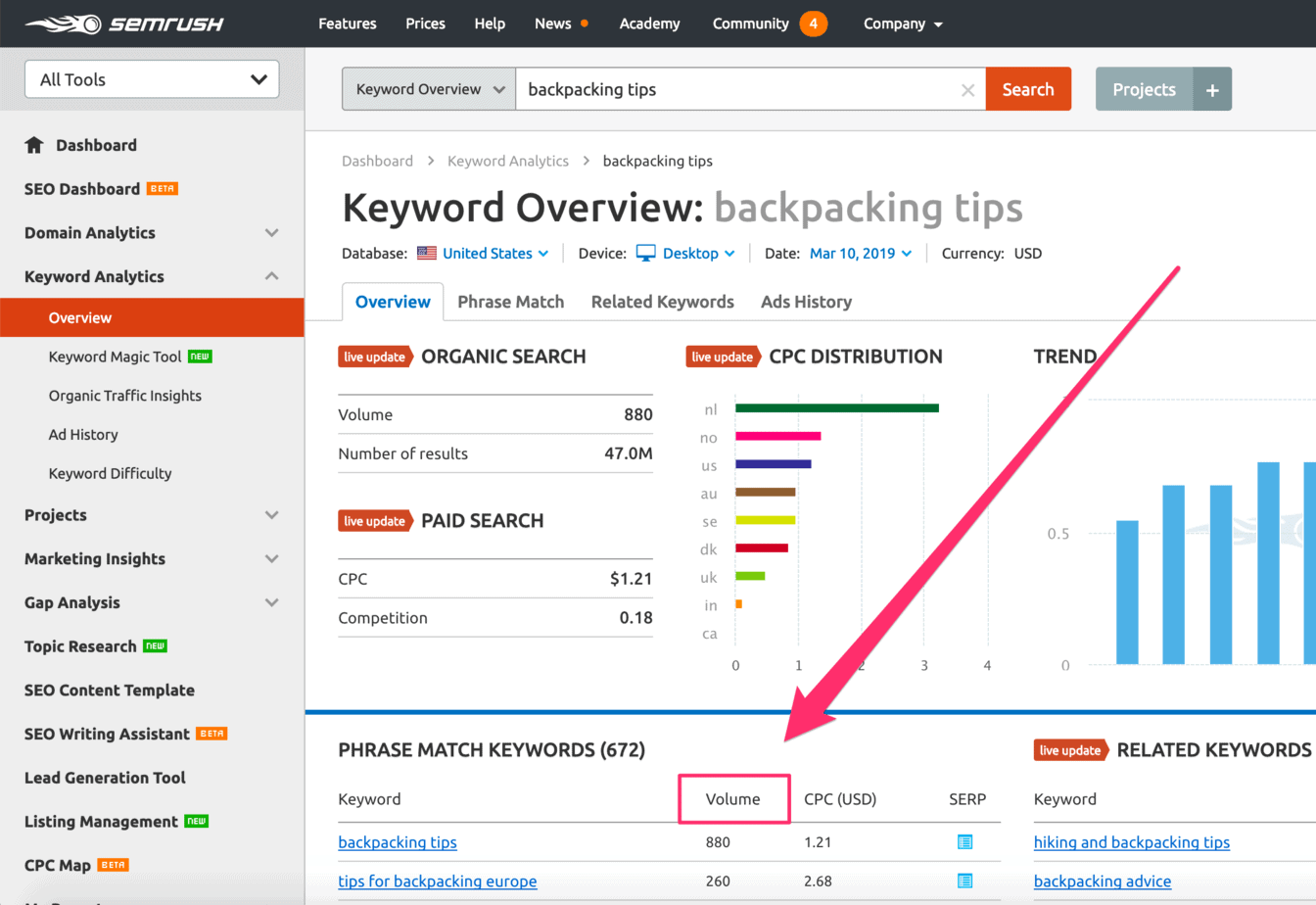
Find focus keywords with good SEO metrics
Here are some SEO metrics you should take into account when choosing your focus keyword.
Monthly search volume
If you’re a beginner, look for keywords that have a monthly search volume of 50 to 1000.
Domain Authority
Install the free MozBar Chrome Extension and look at the domain authority of websites that rank on Page #1 of Google for that keyword.
Here’s an example showing domain authority on Page #1 of Google for the keyword ‘seo for real estate agents’:
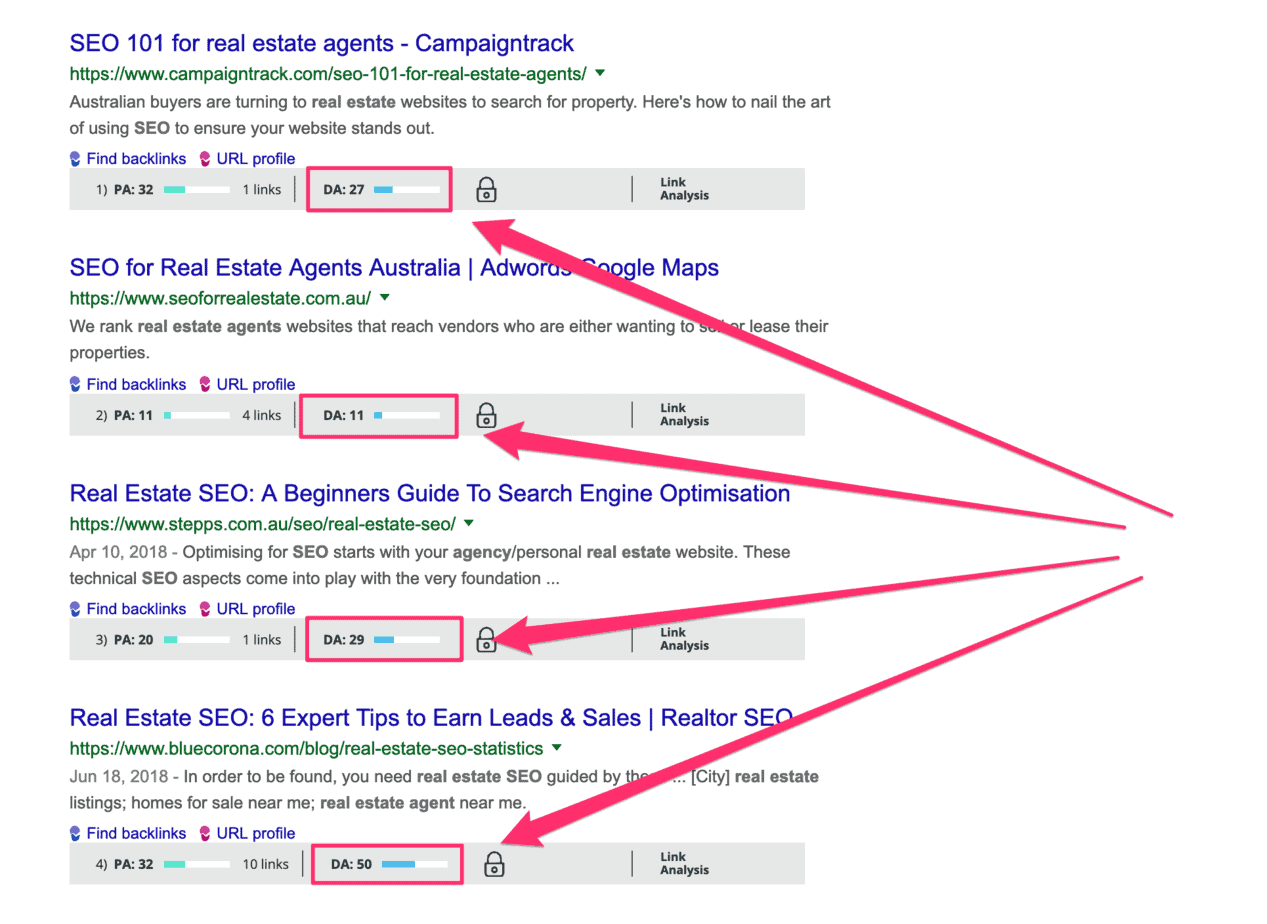
And here’s an example showing domain authority on Page #1 of Google for the keyword ‘content marketing for lawyers’:
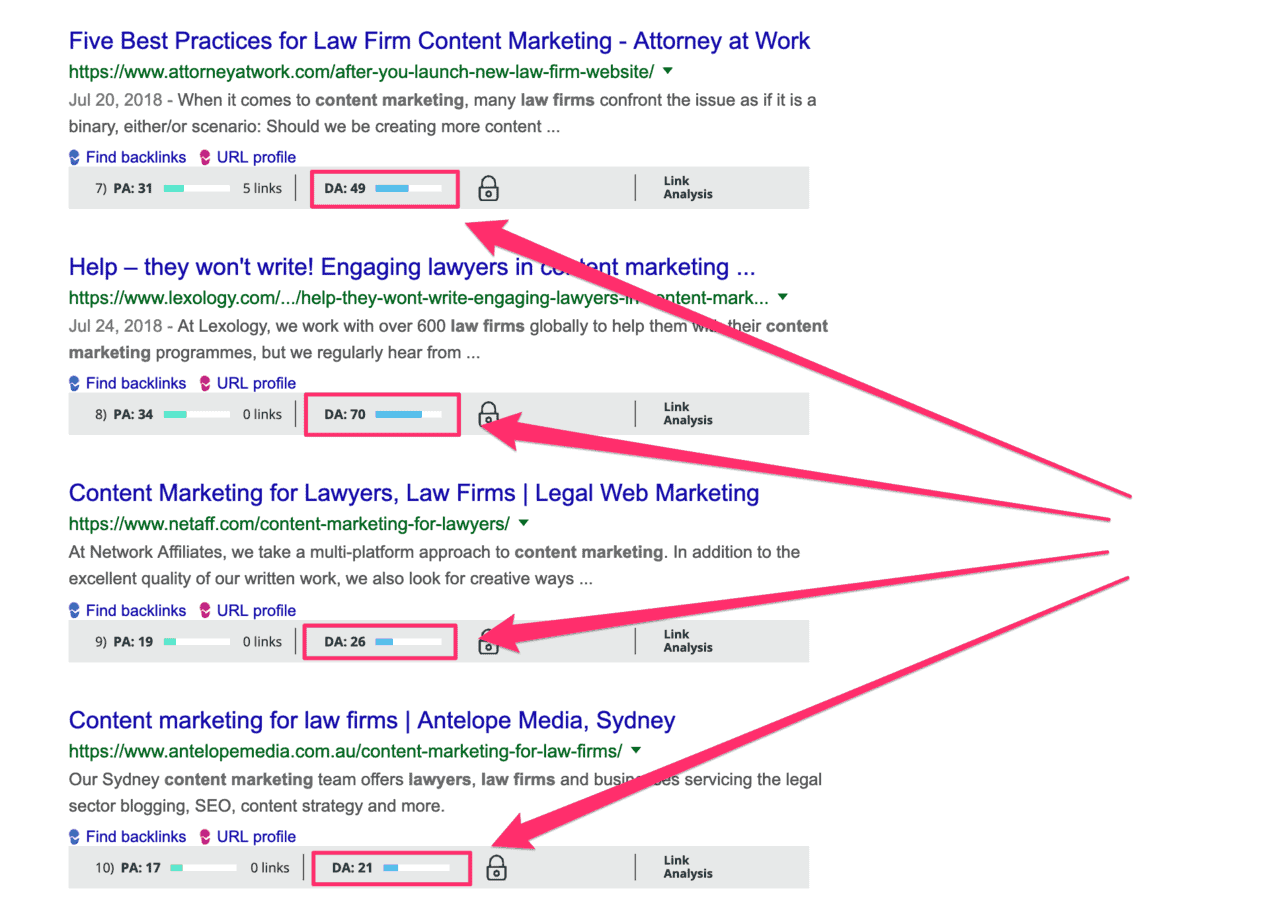
In a nutshell:
- If there are websites with a DA close to your own domain authority (i.e. within 3 or 5 DA points), you have a good chance of ranking for that keyword
- But if the results on Page #1 of Google all have domain authority that’s way above your DA, you need to find a less competitive keyword
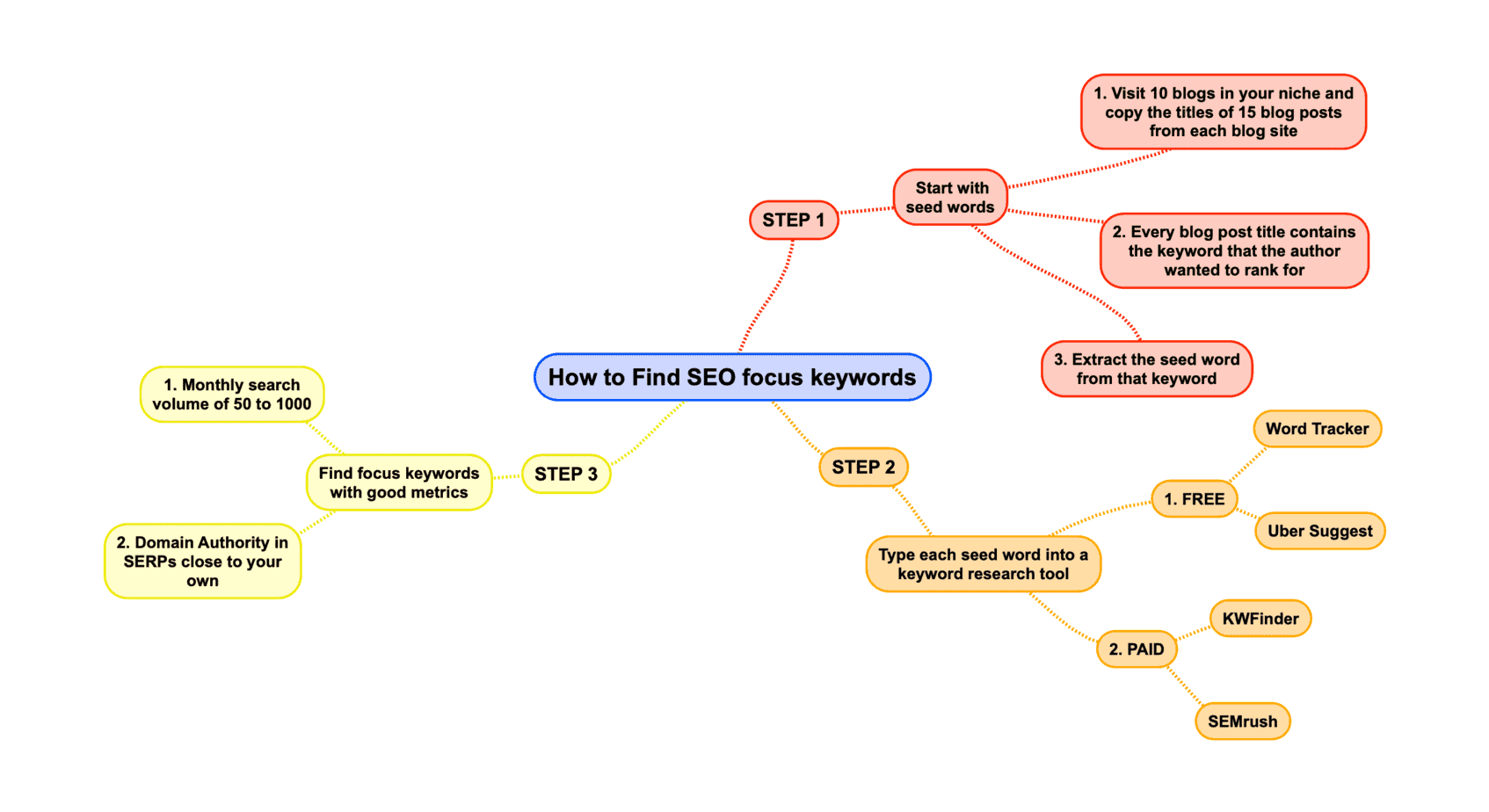
How to Write Articles Around SEO Focus Keywords
Here are the steps I follow to research and write an article around an SEO focus keyword:
- Type your keyword into Google and scan the results
- Look at the topics and sub-topics covered in the top 5 articles on Page #1 for your chosen keyword
- Write an article that covers more topics and sub-topics than any of the 5 articles you examined
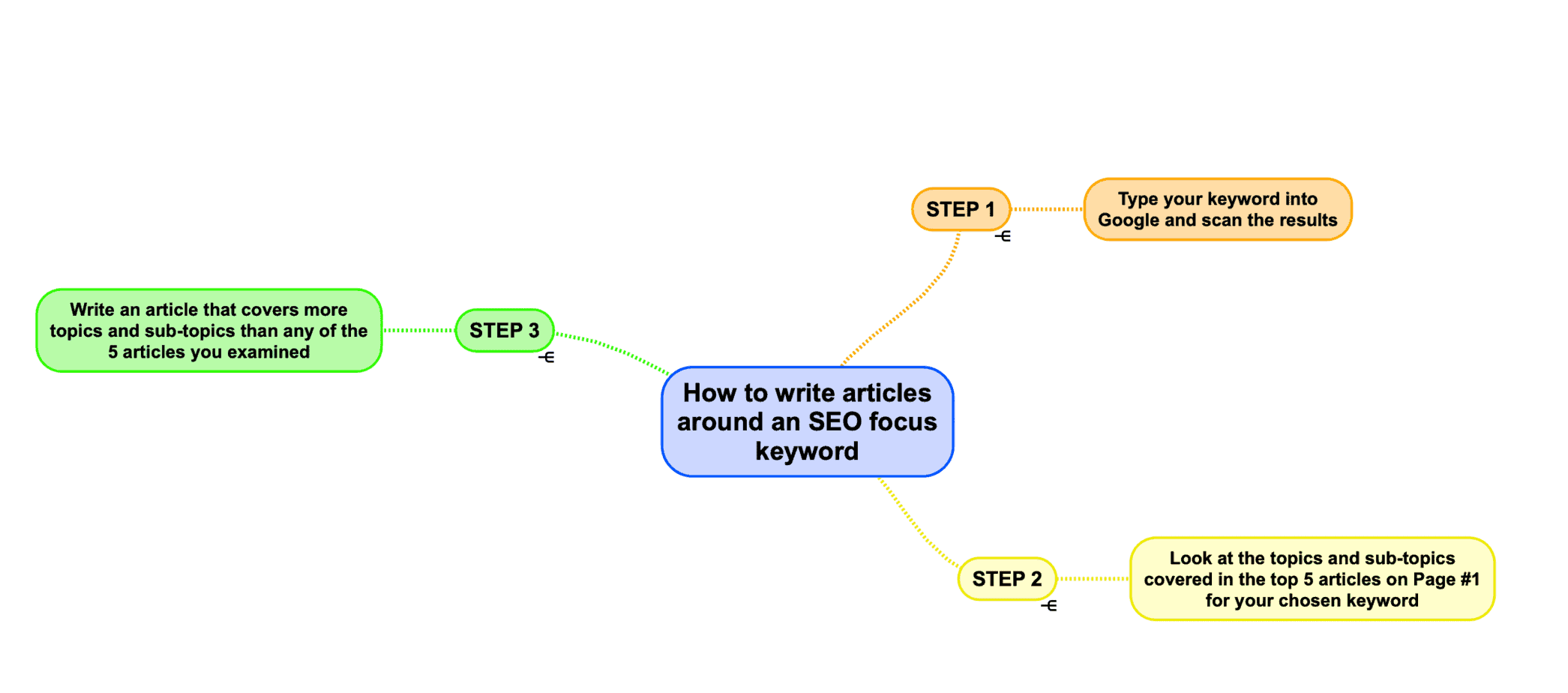
How to Optimise for a Focus Keyword
Install the free Yoast SEO plugin and follow the SEO prompts until you have a green score:
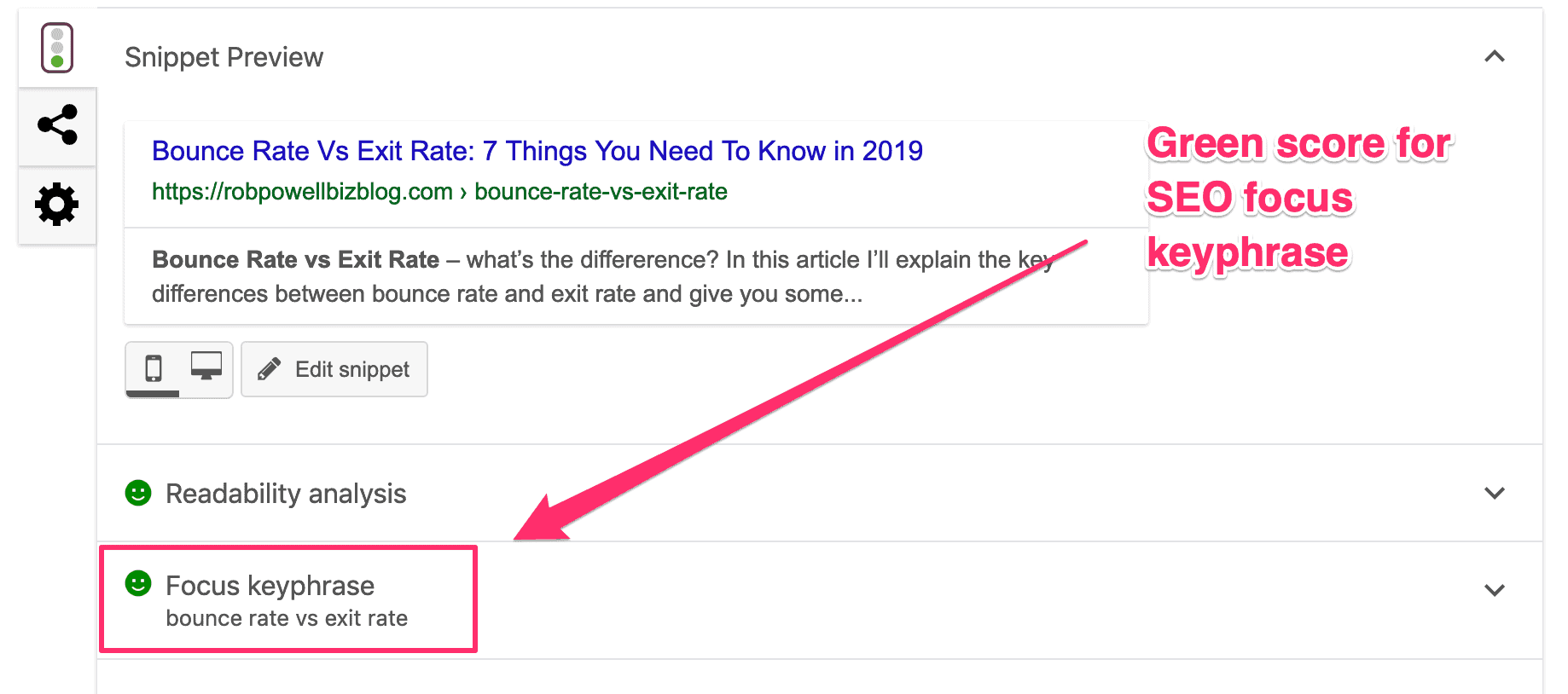
The Yoast SEO plugin checks to see if your keyword (keyphrase) is in the following places:
- Article title
- SEO title
- Meta description
- First paragraph of your article
- At least one heading or sub-heading
- Slug (permalink)
- Image alt tags
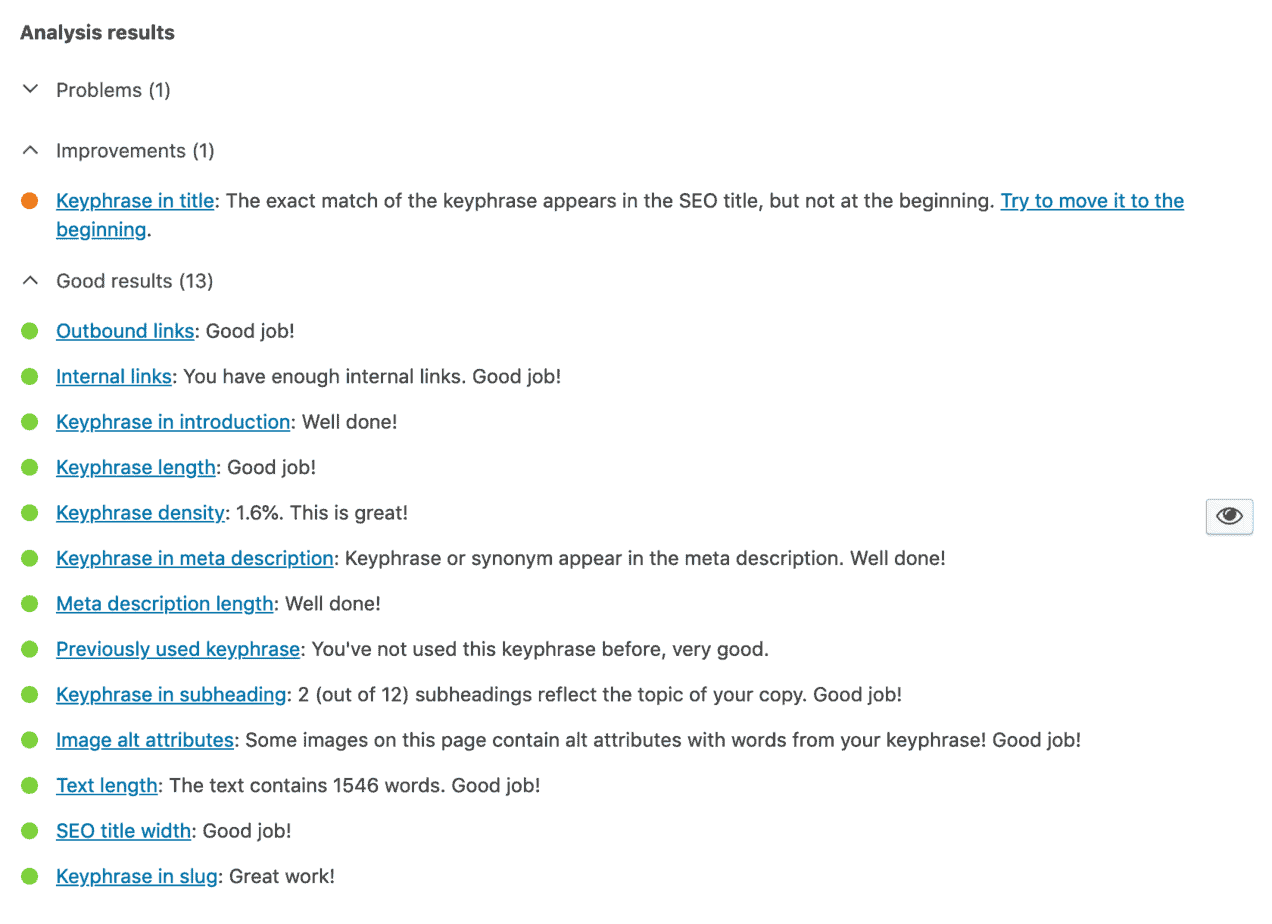
Use Variations of Your Focus Keyword
With semantic indexing, Google now looks for variations of your focus keyword. The more variations you have, the more likely it is that your content covers the topic comprehensively.
The result?
Your page will rank higher in the search results.
You can find variations of your focus keyword in Google’s ‘auto suggest’ feature. Here’s an example:
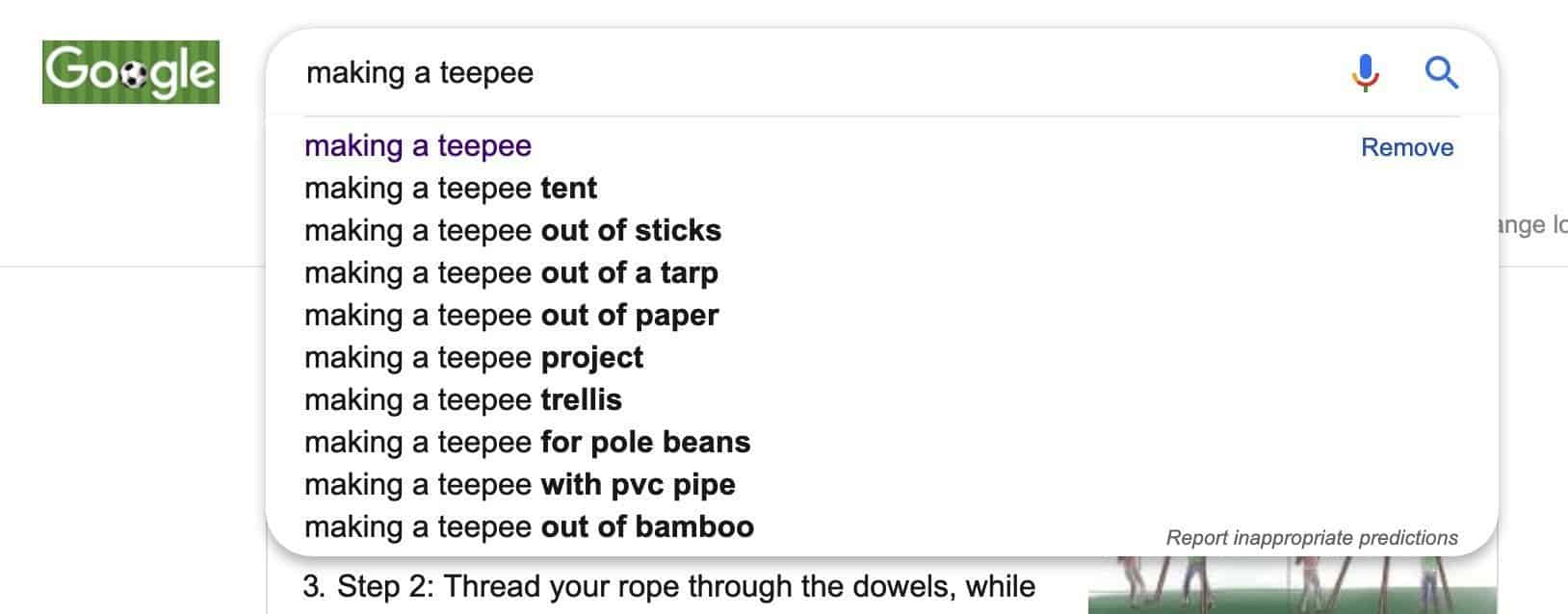
You can often find even more more examples in the ‘searches related to’ section at the foot of the page:
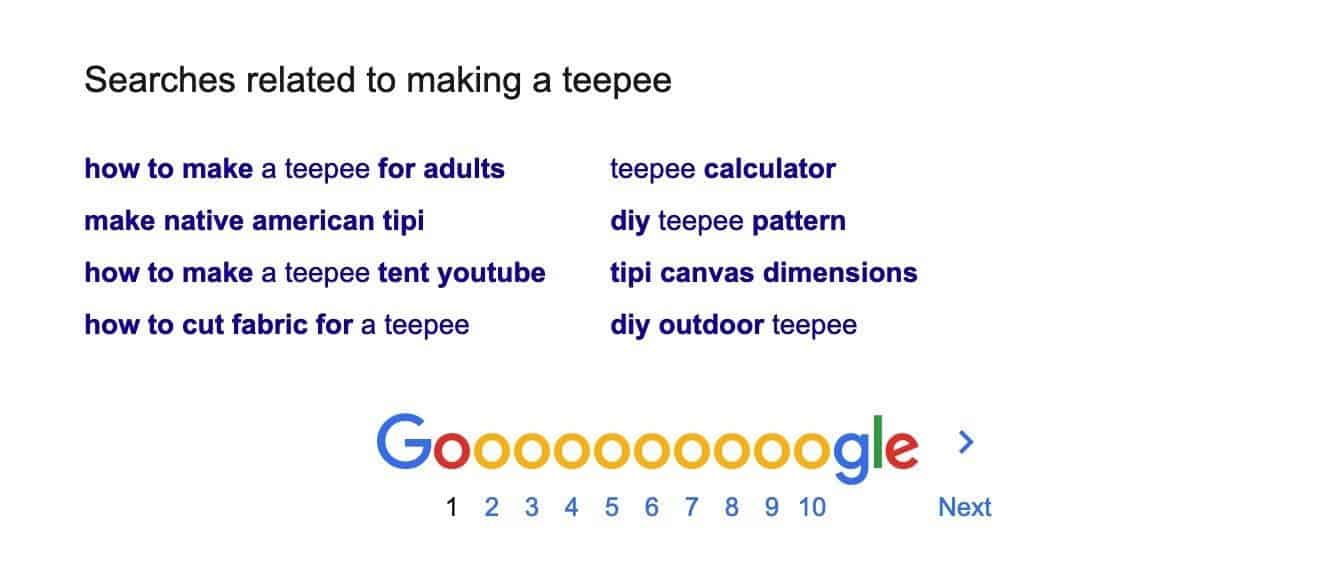
How to Get Your New Blog Post Indexed by Google
Once your article is live, head over to the new Google Search Console and click on URL Inspection:
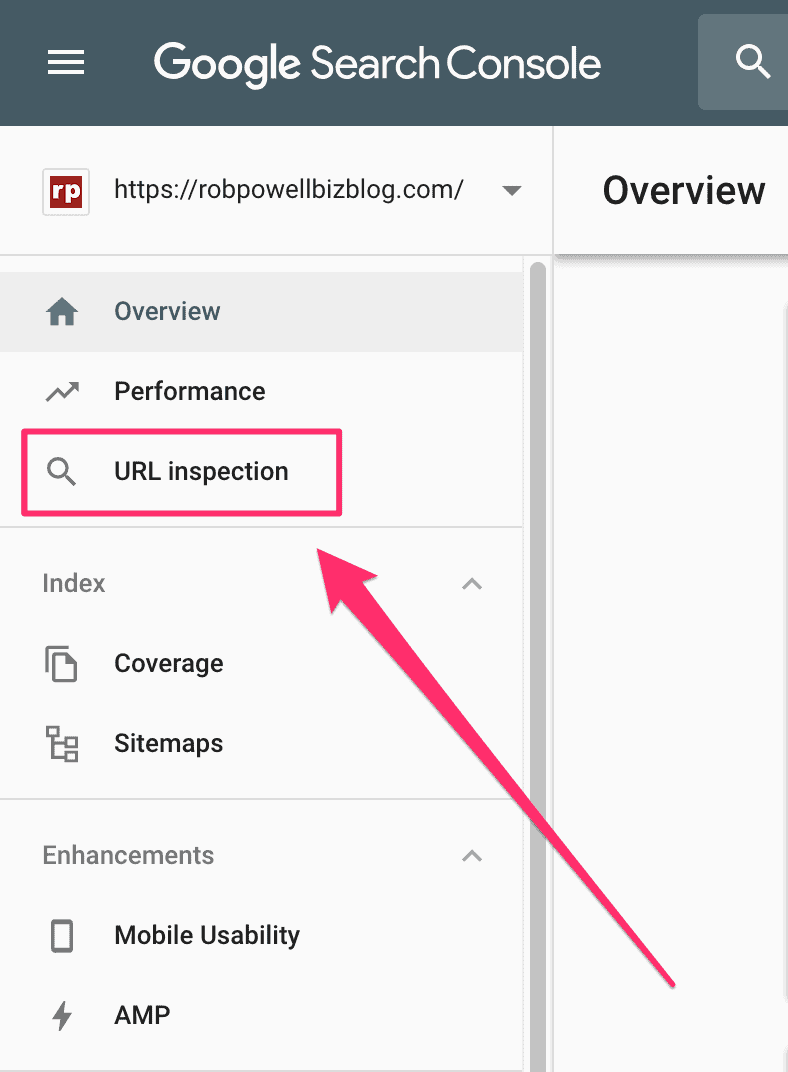
Copy and paste the URL of your new blog post:

Then click ‘Request Indexing’:

You should see your new blog post in the search results within 24 hours.
Focus Keyword: Frequently Asked Questions
Here are some questions people frequently ask about focus keywords:
What is a focus keyword SEO?
A focus keyword is the keyword that is the main focus of your article or blog post. It is the keyword that you want that article to rank for in the search results.
Some SEO plugins, such as Yoast SEO and RankMath, will ask you to specify the focus keyword for your article. The plugin will then analyze your page and tell you what you need to do to optimize the page for your focus keyword.
How do I find the focus keyword for SEO?
You can find focus keywords by doing keyword research.
You start off with a ‘seed keyword’, for example ‘cameras’. You then use a keyword tool to find a long tail keyword that contains your seed word. For example: ‘DSLR cameras under $1000’. That would be your focus keyword. You would then write an article around that focus keyword.
What is an example of a focus keyword?
Here are some examples fo focus keywords:
- In an article titled: ‘Email Marketing Strategy and Tips for Successful Campaigns’, the focus keyword would be ’email marketing’.
- In an article titled: ‘100+ Positive Parenting Tips, Skills and Techniques’, the focus keyword would be ‘parenting tips’.
- In an article titled: ’10 Most Important Meta Tags You Need to Know for SEO’, the focus keyword would be ‘meta tags’.
Conclusion
Your SEO focus keyword is the main keyword that you want your article to rank for in Google. Your article should also contain secondary keywords, keyword synonyms and LSI keywords. And it’s likely that your article will also rank for these other keywords.
But you should always have a focus keyword that you want your article to rank for. Follow the steps in this article and you should start seeing your blog posts ranking on Page #1 of Google for your focus keyword.
More Articles About Keyword Research
- How To Use Keyword Modifiers To Rank on Google
- How to Find Seed Keywords for Better SEO (2 Simple Methods)
- How To Find Long Tail Keywords Using Free & Paid Tools
- How To Rank for Multiple Keywords and Triple Your Traffic
- 21 Types of Keywords in SEO & How To Use Them
- What Are Stop Words In SEO – Everything You Need To Know
- High Intent Keywords – What They Are & How To Use Them
- The Keyword Golden Ratio: The Secret To Ranking on Google
- How To Use ‘People Also Ask’ (PAA) For Better SEO
- What Are LSI Keywords & How To Use Them To Rank Higher
- What Is Keyword Research – A Guide For Beginners (2022)
- What Is Keyword Grouping & How Does It Help With SEO?
Thanks, Rob For Sharing amazing article
I have one quire!!! How can we find more focus keyword when all tools show different Keyword Metrics?
Hi Nick,
Thanks for your comment, much appreciated!
I wasn’t sure if I understood your question. It’s true that the keyword research tools all offer slightly different metrics. Even when they offer the same metric, it can be wildly different. For example, SEMrush’s Keyword Difficulty score is much tougher than KWFinder’s (i.e. the same keyword will have a much harder rating in SEMrush than in KWFinder).
I have found that the best guide to whether you can rank on Page #1 of Google for a given keyword is to do a search on that keyword and see if any of the sites that rank on Page #1 has a Domain Authority (DA) close to yours. If so, then you have a good chance of ranking for that keyword. To check on the DA scores of sites that rank on Page #1 of Google, just install the MozBar Chrome Extension
Hope this helps,
Rob.
Thanks for this amazing article.
Keep it up.
Hi Soumen, thanks for your comment: glad it was useful, Rob.
Thanks for this informative post. After a long time I have found a nice and realistic content on keywords research and SEO. Many many thanks for your contribution. I have read a lot of articles on this topic. But I don’t find any simple and easy content about the topic. Please describe how I use Google search console . In your post it’s not clear to me .
.
.
Hi Zahir,
Thanks, it’s great to get a comment like that!
And thanks also for your request – my next blog post will be about Google Search Console.
Stay tuned 🙂
Best, Rob.